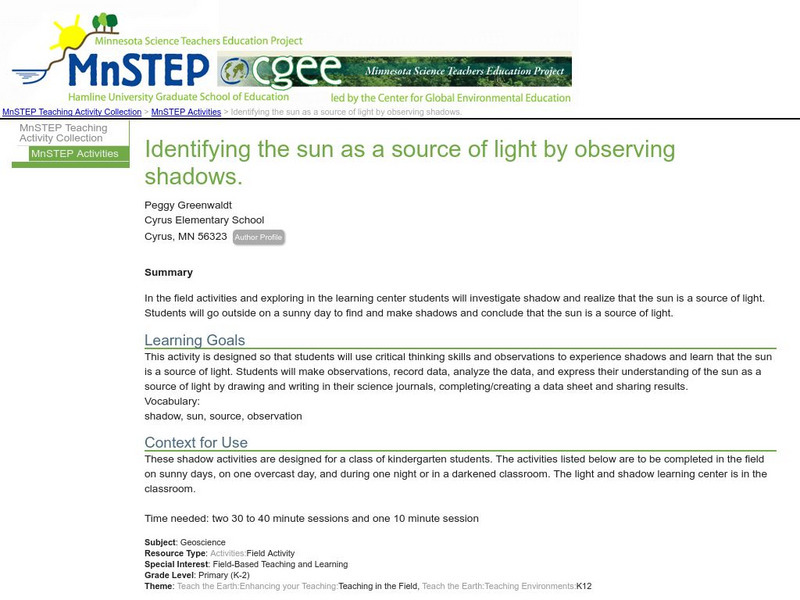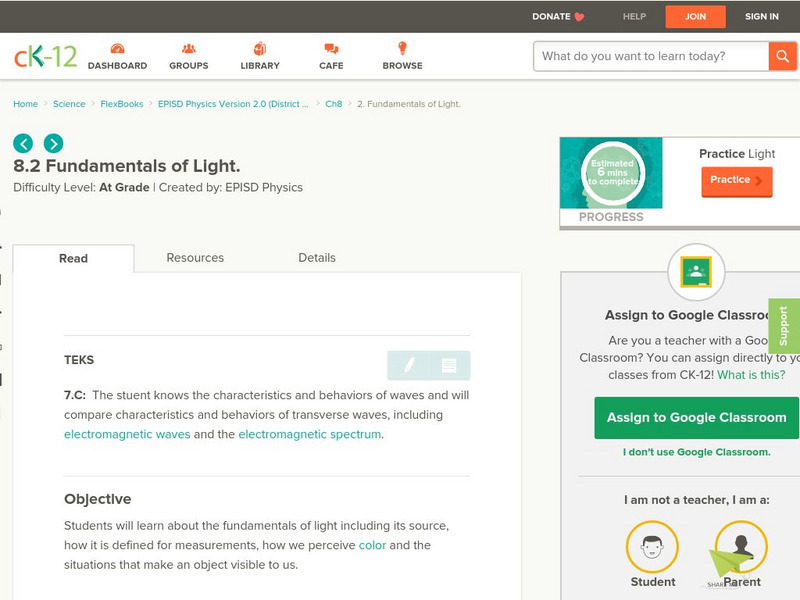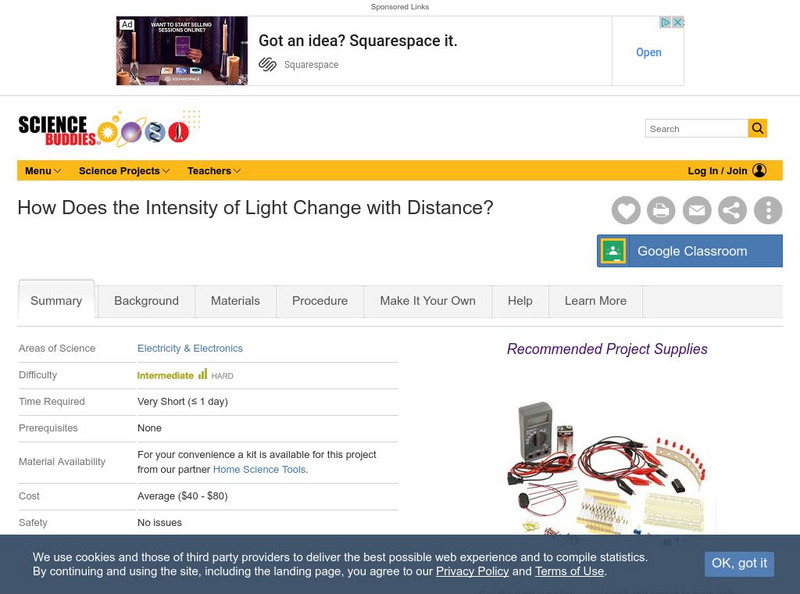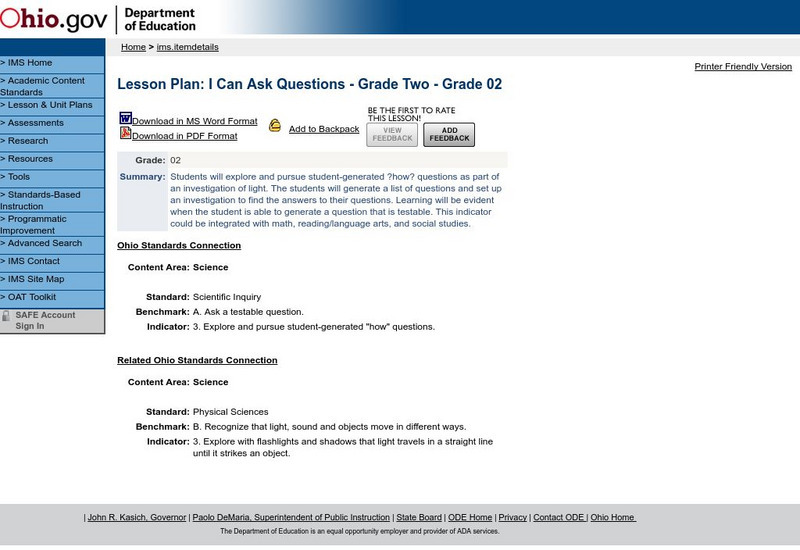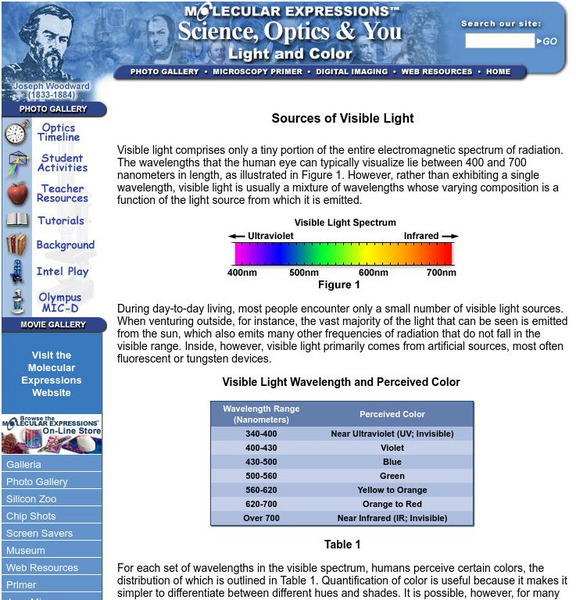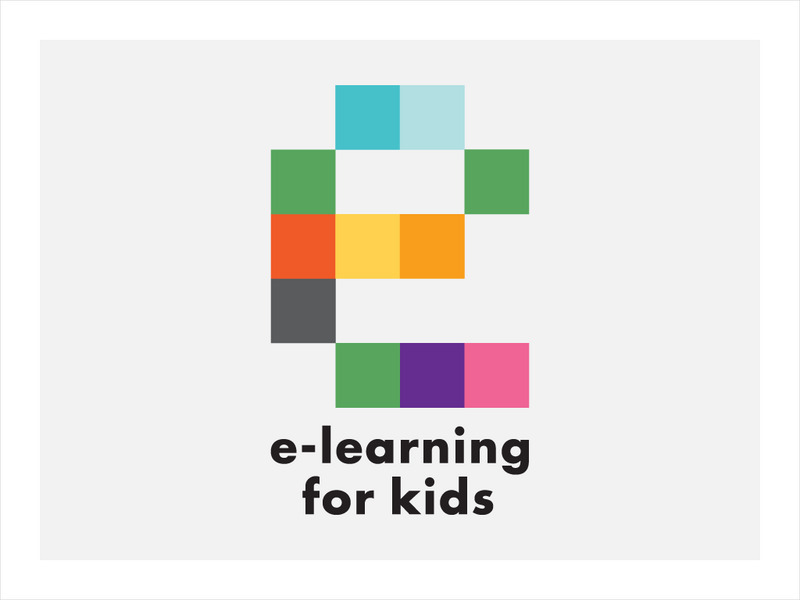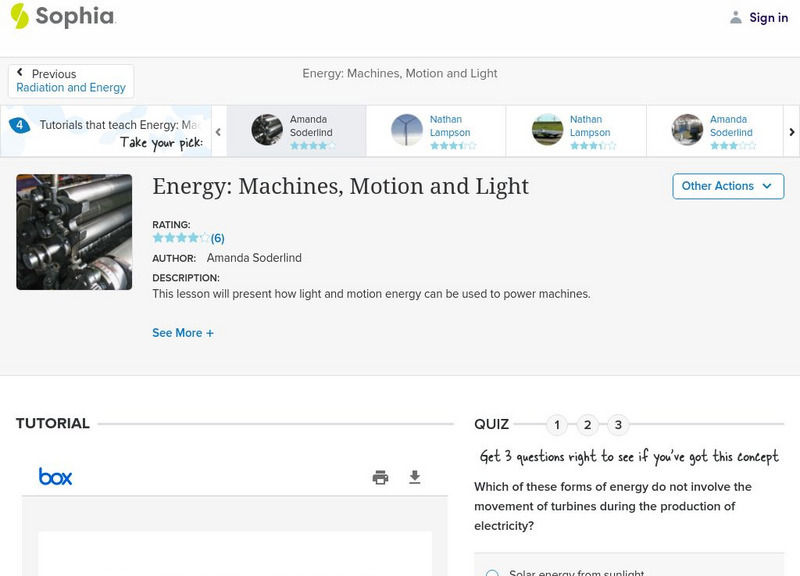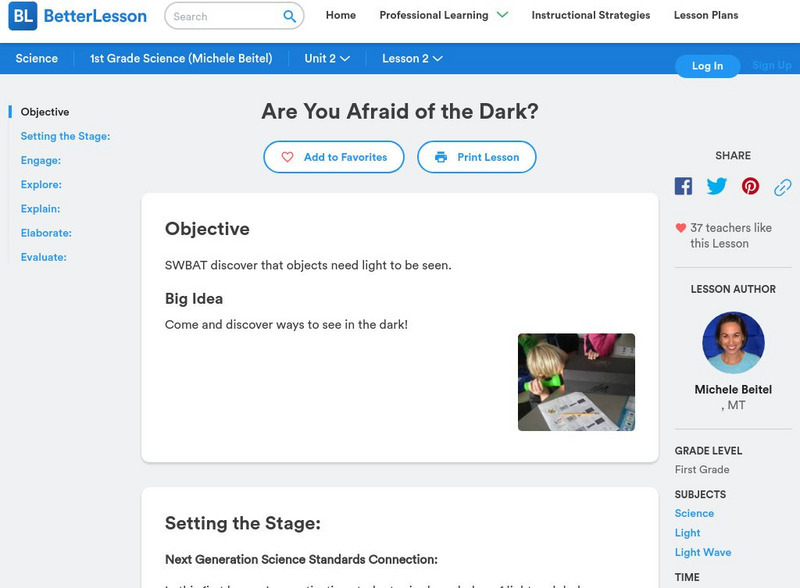Hi, what do you want to do?
Science Education Resource Center at Carleton College
Serc: Identifying the Sun as a Source of Light by Observing Shadows
Young scholars investigate shadows and discover that the sun is a source of light.
CK-12 Foundation
Ck 12: Fundamentals of Light
[Free Registration/Login may be required to access all resource tools.] Students investigate the fundamentals of light including its source, how it is defined for measurements, how we perceive color, and the situations that make an...
E-learning for Kids
E Learning for Kids: Science: Denmark: What Are Light and Darkness?
In this module, students learn about the different sources of light, what causes darkness, and about shadows.
Science Buddies
Science Buddies: How Does the Intensity of Light Change With Distance?
How far would you have to travel so that the light of the full sun would provide "daylight" no brighter than twilight on Earth? This project describes a method to verify the inverse square law: how light, sound, electrical signals, and...
Other
Ohio Dept. Of Education: Lesson Plan: I Can Ask Questions Grade Two
Students will explore sources of light in this lesson and generate their own questions for further investigation, then find answers.
Florida State University
Florida State University: Light and Color: Sources of Visible Light
This site discusses primary lighting sources and gives information on the different properties and spectral characteristics of each. Also includes links to some interactive Java applets.
eSchool Today
E School Today: Your Cool Facts and Tips on Light Pollution
What is light pollution and why should we care about it? Learn what it is, the different types, sources of this type of pollution, the impact it has, and ways to combat it.
Science Education Resource Center at Carleton College
Serc: Characteristics of Light: Light Travels in a Straight Line
In this lab experience, the students will be asked questions about characteristics of light and sound and whether these energy sources travel in straight lines. The teacher briefly demonstrates light and sound travel. Students will...
Texas Instruments
Texas Instruments: Holt Physics: Brightness of Light
This probeware version of the Skills Practice Lab Brightness of Light from the chapter Light and Reflection uses a light probe to measure the intensity of light at different distances from a light source.
Libre Text
Libre Texts: Physics: The Ray Model of Light
How is light visible? Examine this source to understand what light is and how it travels. Answer discussion questions and practice problems to better recognize light rays and know their functions.
The Tech Interactive
Tech Museum of Innovation: Common Light Sources
While reviewing various light sources, the source of colors (white, red, yellow, blue) are also discussed. The bouncing of light, the matching of colors, and seeing colors are all highlighted.
PBS
Pbs Nova: Dirty Bomb: Sources of Radiation
In this interactive, learn about sources of both beneficial and harmful radiation which exist in many forms all around us.
My Science Site
Optics: Energy and Control [Pdf]
A very comprehensive unit including topics such as light and its source, visible sources of light, transparency of objects and much more. Also offers a resource list, blackline masters, and expectation list, expectation summary and a...
CK-12 Foundation
Ck 12: Physical Science: Sources of Visible Light
[Free Registration/Login may be required to access all resource tools.] Definition of visible light and what incandescence, luminescence and illumination are and how they occur.
PBS
Pbs Learning Media: Explore How Light Is Needed to See Things: Interactive Lesson
Explore how light moves and describe how an object in a dark space only becomes visible when light moves into the space and illuminates it. Interactive activities, time-lapse videos, and images are used to enhance student observations as...
CK-12 Foundation
Ck 12: First Grade Science: How Do I See?
[Free Registration/Login may be required to access all resource tools.] Explores sources and properties of light and its effect on seeing.
PBS
Pbs American Experience: Edison's Miracle of Light
This site explores the various challenges Edison faced upon attempting to produce electric power. It contains a historical essay, a complete list of Edison's patents, information on the AC and DC currents, recordings produced by the...
E-learning for Kids
E Learning for Kids: Science: Antilles: What Are the Different Forms of Energy?
Students will learn about the different types and sources of energy, including heat and light, electrical, potential, and kinetic energy.
University of Colorado
University of Colorado: Ph Et Interactive Simulations: Wave Interference
Make waves with a dripping faucet, audio speaker, or laser. Add a second source or a pair of slits to create an interference pattern.
Physics Aviary
Physics Aviary: Solar System Energy Lab
This lab is designed to have students investigate the relationship between the distance you are from a source of light and the intensity of the light your receive.
TeachEngineering
Teach Engineering: Spectroscopy
Students learn how using a spectrograph helps us understand the composition of light sources. Using simple materials and holographic diffraction gratings (available online at a variety of sites, including Edmund Scientifics and the...
Sophia Learning
Sophia: Energy: Machines, Motion and Light
An introductory lesson describing the definition of energy, and highlighting different sources of usable energy.
TeachEngineering
Teach Engineering: Measuring Light Pollution
Students are introduced to the concept of light pollution by investigating the nature, sources and levels of light in their classroom environment. They learn about the adverse effects of artificial light and the resulting consequences on...
Better Lesson
Better Lesson: Are You Afraid of the Dark?
Come and discover ways to see in the dark! Students will conduct an investigation on light and dark. The investigation will allow students to gather evidence on how items illuminate. Using cause and effect, the students will demonstrate...





